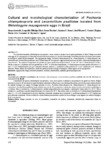Please use this identifier to cite or link to this item:
http://www.alice.cnptia.embrapa.br/alice/handle/doc/658298Full metadata record
| DC Field | Value | Language |
|---|---|---|
| dc.contributor.author | AREVALO, J. | pt_BR |
| dc.contributor.author | HIDALGO-DÍAZ, L. | pt_BR |
| dc.contributor.author | MARTINS, I. | pt_BR |
| dc.contributor.author | SOUZA, J. F. | pt_BR |
| dc.contributor.author | CASTRO, J. M. da C. e | pt_BR |
| dc.contributor.author | CARNEIRO, R. M. D. G. | pt_BR |
| dc.contributor.author | TIGANO, M. S. | pt_BR |
| dc.date.accessioned | 2011-04-10T11:11:11Z | pt_BR |
| dc.date.available | 2011-04-10T11:11:11Z | pt_BR |
| dc.date.created | 2010-02-19 | pt_BR |
| dc.date.issued | 2009 | pt_BR |
| dc.identifier.citation | Tropical Plant Pathology, v. 34, n. 3, p. 158-163, 2009. | pt_BR |
| dc.identifier.uri | http://www.alice.cnptia.embrapa.br/alice/handle/doc/658298 | pt_BR |
| dc.description | The root-knot nematode, Meloidogyne mayaguensis, causes serious economic loss to guava plantation in Brazil. Fungi associated with eggs of M. mayaguensis in Brazilian soil have not been studied yet, but this knowledge could form the basis for future field studies on biological control of this nematode. The egg parasitic fungi, Pochonia chlamydosporia var. chlamydosporia, P.chlamydosporia var. catenulata and Lecanicillium psalliotae, were isolated from M. mayaguensis eggs and analyzed based on their cultural and morphological characteristics. The optimum temperature for growth and spore production ranged between 24 and 28oC for P. chlamydosporia isolates. For the isolate of L. psalliotae, the best growth was at 30 o C. In solid state fermentation, P. chlamydosporia isolates produced between 3.5 and 5.2 x 106 chlamydospores per g of colonized substrate, whereas L. psalliotae isolate produced 8.5 x 108 conidia per g of colonized substrate. Future studies are required to clarify the potential of these fungi as biological control agents of M. mayaguensis. | pt_BR |
| dc.language.iso | eng | eng |
| dc.rights | openAccess | eng |
| dc.subject | Nematóide das galhas | pt_BR |
| dc.subject | Disease | pt_BR |
| dc.subject | Guava | pt_BR |
| dc.title | Cultural and morphological characterization of Pochonia chlamydosporia and Lecanicillium psalliotae isolated from Meloidogyne mayaguensis eggs in Brazil. | pt_BR |
| dc.type | Artigo de periódico | pt_BR |
| dc.date.updated | 2017-04-25T11:11:11Z | pt_BR |
| dc.subject.thesagro | Goiaba | pt_BR |
| dc.subject.thesagro | Doença | pt_BR |
| dc.subject.thesagro | Controle Biológico | pt_BR |
| dc.subject.thesagro | Fungo | pt_BR |
| dc.subject.nalthesaurus | Meloidogyne mayaguensis | pt_BR |
| riaa.ainfo.id | 658298 | pt_BR |
| riaa.ainfo.lastupdate | 2017-04-25 | pt_BR |
| dc.contributor.institution | JERSYS AREVALO; LEOPOLDO HIDALGO-DÍAZ; IRENE MARTINS, CENARGEN; JANAÍNA F. SOUZA; JOSE MAURO DA CUNHA E CASTRO, CPATSA; REGINA MARIA DECHECHI G CARNEIRO, CENARGEN; MYRIAN SILVANA TIGANO, CENARGEN. | pt_BR |
| Appears in Collections: | Artigo em periódico indexado (CPATSA)  | |
Files in This Item:
| File | Description | Size | Format | |
|---|---|---|---|---|
| JoseMauro.pdf | 844,71 kB | Adobe PDF |  View/Open |









